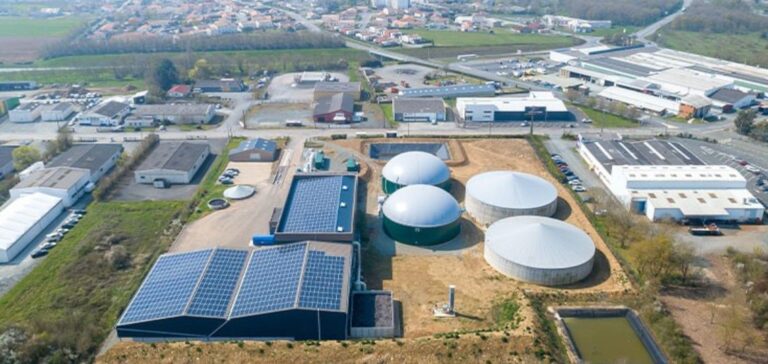ENGIE and the Institut National de Recherche pour l’Agriculture, l’Alimentation et l’Environnement (INRAE) have announced the renewal of their five-year partnership to develop the biomethane sector.
The framework agreement focuses on the valorization of bio-waste, the improvement of intermediate crops for energy purposes, and the optimization of methanization processes.
The aim of this collaboration is to meet the challenges of biomethane production in France, taking into account economic, environmental and societal impacts.
Development priorities and strategies
The agreement between ENGIE and INRAE is structured around several areas of research.
The development of biowaste recovery, in line with the sorting obligation, remains a priority.
At the same time, the introduction of intermediate crops on French farms, intended for energy production, is envisaged as a solution to boost the availability of resources.
The two players are also seeking to assess the impact of climate change on these resources and adjust the sector accordingly.
Optimizing biomethane production is another key objective.
The integration of innovative technologies, such as in situ biomethanation, is being explored to increase the productivity of methanization units.
The Métha-Hyn project, funded by the French Agency for Ecological Transition (ADEME), is a concrete example.
Initial results indicate a 30% increase in biogas production thanks to this technology, demonstrating the potential for improving plant efficiency.
An approach based on Research and Innovation
In this collaboration, ENGIE and INRAE are drawing on their respective expertise to conduct applied research and develop innovative technologies.
ENGIE, a major player in biomethane production in France, is targeting an annual production of 10 TWh in Europe by 2030.
To achieve this goal, the group is counting on innovations that optimize the yield of methanization facilities while reducing operating costs.
INRAE, for its part, is contributing its expertise in environmental biotechnology and biogas life-cycle analysis.
By studying the impact of agricultural practices and future climate scenarios, INRAE is contributing to more efficient management of biomass resources.
This partnership also highlights the importance of thesis contracts and collaborations within European and national research programs, which are essential to the industry’s progress.
Biomethane Sector Challenges and Opportunities
The biomethane sector faces a number of challenges, including the availability of agricultural biomass and fluctuating European regulations.
The renewal of this partnership aims to meet these challenges by strengthening the sector’s resilience through optimized management of resources and processes.
By exploring new solutions for biowaste recovery and developing cutting-edge methanization technologies, ENGIE and INRAE are seeking to stabilize the sector in the face of economic and climatic uncertainties.
Changes in the regulatory framework, in particular the obligation to sort biowaste and financial incentives for energy crops, are also creating opportunities for the sector.
The deepening of the ENGIE-INRAE collaboration comes against this backdrop of rapid transformation, offering a strategic lever to meet the growing need for renewable energies, while ensuring greater competitiveness for the French sector on the European market.






















